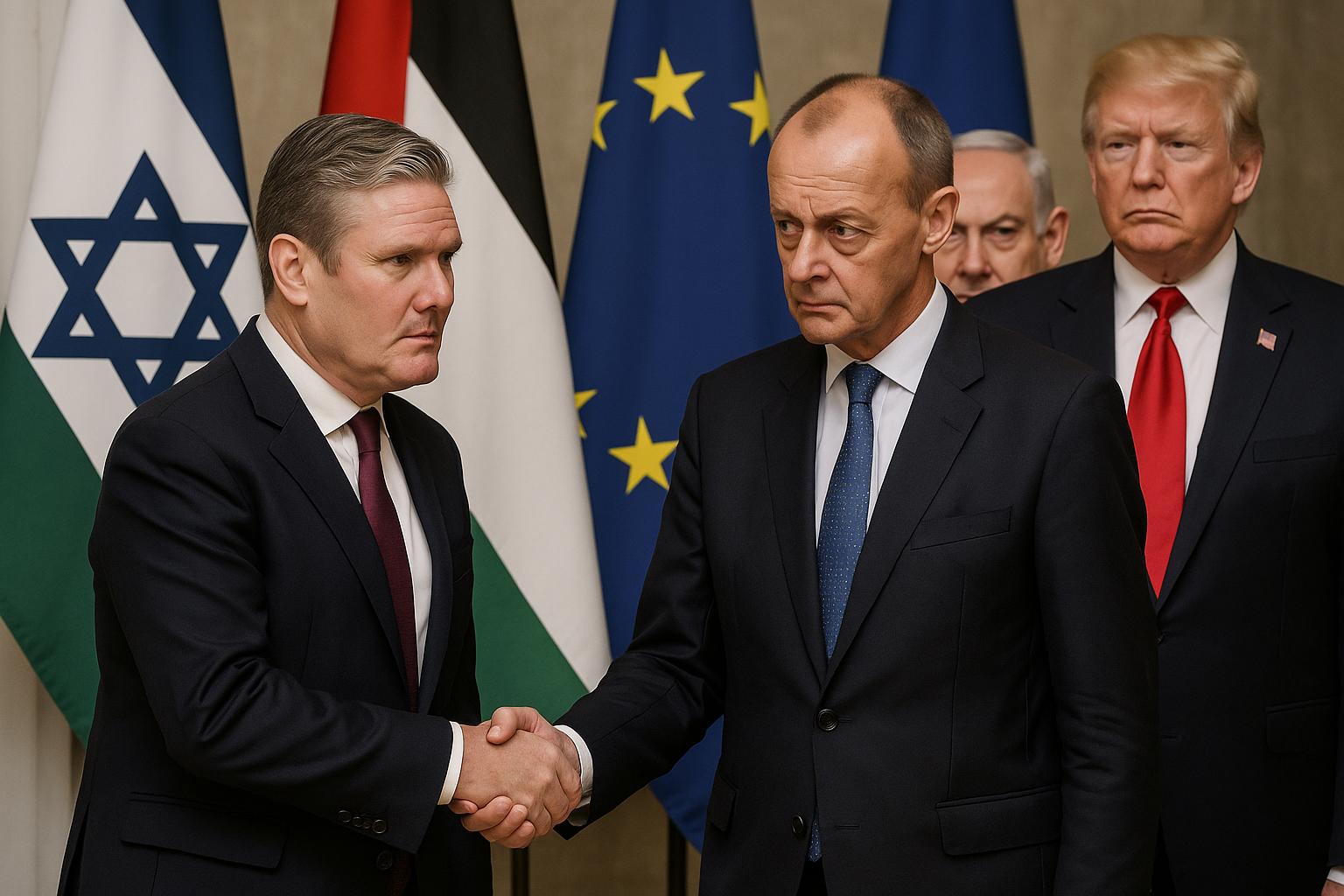While both Keir Starmer of the U.K. and Friedrich Merz of Germany agree on the urgent necessity for a ceasefire, they have encountered challenges in coordinating their efforts more closely. Neither leader has committed to recognizing the state of Palestine at this point, though both are exploring alternative methods to increase pressure on Israel.
A potential avenue for Merz’s government to escalate pressure on Israel is by reconsidering its opposition to EU proposals aimed at suspending the EU-Israel Association Agreement, which facilitates significant trade relations and cooperation.

On Friday, a spokesperson for the Chancellor stated, “he is prepared to increase the pressure if progress [on issues such as a ceasefire and humanitarian aid] is not made.” Meanwhile, the U.K. has already implemented sanctions against members of the Israeli government. Starmer faces rising calls, including from a coalition of over 200 cross-party MPs, to support France’s stance on recognizing Palestine.
Some analysts suggest that Starmer’s reluctance may stem from his intention to maintain favorable relations with U.S. President Donald Trump, who is visiting Scotland on Friday to oversee activities at two of his golf courses. The U.S. has historically provided substantial military, financial, and diplomatic backing to Israel throughout the ongoing conflict.
Also Read – Charges Filed Against 22-Year-Old in Fatal Shooting of ‘American Idol’ Music Supervisor and Spouse
As Berlin signals a willingness to adopt tangible measures against Israel for the first time and as Starmer is eager to engage with Trump, the pivotal question remains whether Israeli Prime Minister Benjamin Netanyahu will respond to these diplomatic efforts.






